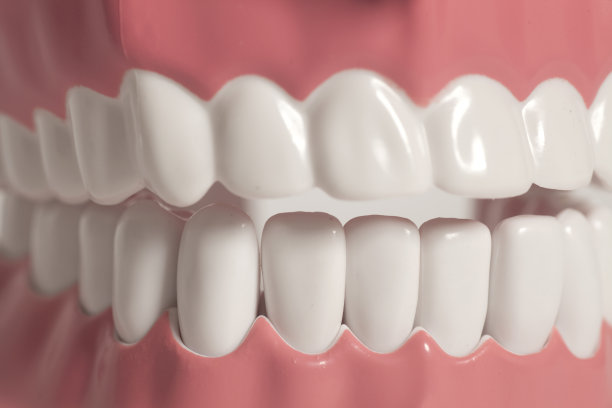Summary: Periodontal disease is a common yet often overlooked oral health issue that can significantly affect the overall health and wellbeing of both adults and children. This article delves into the nature of periodontal disease, its causes, symptoms, and the consequences of untreated infections on systemic health. It also emphasizes the importance of maintaining proper oral hygiene and seeking professional care to mitigate the risks associated with periodontal disease. By understanding how this condition impacts daily life through possible links to various health disorders, individuals can make informed choices about their dental care. This comprehensive exploration seeks to raise awareness about periodontal health and its wider implications for quality of life.
1. Definition and Types of Periodontal Disease

Periodontal disease refers to the infections and inflammations affecting the gums and supporting structures of the teeth. It ranges from simple gum inflammation, known as gingivitis, to more severe forms, such as periodontitis. Gingivitis is characterized by redness and swelling of the gums, often accompanied by bleeding during brushing or flossing. Fortunately, this early stage is reversible with proper care.
Periodontitis, on the other hand, is a severe condition that can lead to tooth loss if untreated. It results from prolonged gingivitis and involves the destruction of the gum tissues and bone. This stage may also lead to pockets forming between teeth and gums, harboring bacteria that exacerbate the disease.
Understanding these types is crucial not only for timely diagnosis and treatment but also for recognizing the implications of periodontal health on broader systemic issues. Early intervention can prevent the escalation to periodontitis.
2. Risk Factors and Causes of Periodontal Disease
Several risk factors contribute to the onset of periodontal disease. One major factor is poor oral hygiene, which encourages plaque buildup—a sticky film of bacteria on teeth. If not removed through regular brushing and flossing, this plaque can harden into tartar, leading to gum disease.
Other contributing factors include smoking, which significantly impairs gum health, and conditions like diabetes that compromise the immune system. Hormonal changes during puberty, menstruation, or pregnancy can also make gums more susceptible to bacterial invasion.
Additionally, certain medications that cause dry mouth can prevent normal saliva flow, essential for cleaning the mouth, thereby increasing the risk of periodontitis. Recognizing these risk factors stresses the importance of targeted preventative measures in both children and adults.
3. Impact on Overall Health and Wellbeing
The implications of periodontal disease extend beyond oral health, often impacting overall wellbeing. Studies have linked periodontal infections to various systemic diseases, including heart disease, diabetes, and respiratory illnesses. The inflammation associated with gum disease can lead to increased systemic inflammation, potentially exacerbating existing health conditions.
In children, the impact can be particularly pronounced, affecting nutritional intake due to difficulties with chewing and resulting in an overall decline in physical health. Additionally, untreated periodontal disease can lead to social discomfort or low self-esteem due to concerns about breath and overall dental appearance.
Moreover, neglected periodontal health can interfere with cognitive function in older adults. The bidirectional relationship between periodontal disease and systemic health highlights the critical nature of maintaining excellent oral hygiene as a component of general health practices.
4. Prevention and Treatment of Periodontal Disease
Preventing periodontal disease is primarily centered around diligent oral hygiene routines, which include regular brushing, flossing, and professional dental cleanings. The American Dental Association recommends brushing at least twice a day and flossing daily to mitigate plaque buildup.
Regular check-ups allow for early intervention, enabling dental professionals to identify signs of gum disease before it escalates. Moreover, patients should be educated about proper techniques and the importance of consistency in their oral hygiene practices.
In cases where periodontal disease is present, treatments can vary from non-surgical approaches, such as scaling and root planing, to surgical options for more severe cases. These procedures aim to restore gum health and prevent further damage, underscoring that timely treatment is critical in managing this condition effectively.
Summary:
Overall, understanding periodontal disease is essential for maintaining not just oral health, but also overall wellness. Its various implications, from risk factors to potential health complications, highlight the importance of diligent dental care practices. Beyond recognizing the symptoms and initiating treatment, proactive measures in prevention can significantly improve health outcomes for both adults and children.
This article is compiled by Vickong Dental and the content is for reference only
Vickong Dental
Vickong Dental is a large medical group established in Hong Kong in 2008 by professors from well-known medical universities in Guangdong and Hong Kong, as well as medical doctors from key national '985' universities (including Master's supervisors and senior professors). The chain of branches brings together expert dentists with PhDs and Master's degrees from Hong Kong and Mainland China, committed to providing high-quality dental treatment.
"Vickong Dental Practices the University Motto of 'Healing and Serving Society,' with a Stable Operation for Sixteen Years. It Has Been honored with Hong Kong Enterprise Leaders's Choice,' and is a Global Trusted Implant Center for the Nobel Implant System. Recommended by Hong Kong Metro Broadcast and Guangdong Television, it Serves Customers from Over Thirty Countries and Regions, Gaining the Trust and Favor of Citizens from the Guangdong-Hong Kong-Macau Greater Bay Area and Surrounding Cities.

Thousands of customers' unanimous praise
The most recognized and highly recommended dental service by customers in the Guangdong-Hong Kong-Macau Greater Bay Area
We Ensure You Receive Detailed Care and Attention Here
Hong Kong standards, Shenzhen prices, Your Trusted English-speaking dentists

Vickong Dental Medical-Grade Instrument Disinfection Process
Vickong Dental Medical-Grade Instrument Disinfection Process

Vickong Dental Chain: A Warm and Comfortable Environment for Treatment






Appointment Hours

Q&A
Why choose Vickong Dental?
Vickong Dental practices the university motto 「Medicine to Benefit Society」, with each branch bringing together highly qualified dentists with doctoral and master’s degrees from Hong Kong and the Mainland, and has maintained seventeen years of steady operation。Recipient of 「2024 Hong Kong Enterprise Leaders Brand」, 「2025 Hong Kong Enterprise Leaders Brand」, a Nobel Biocare Global Trusted Implant Center, and a brand recommended by Metro Radio Hong Kong and Guangdong TV。
To date, we have served customers from more than thirty countries and regions,earning exceptionally high word-of-mouth recognition and trusted recommendations from residents across the Guangdong-Hong Kong-Macao Greater Bay Area and surrounding cities
We have eight major branches in Zhuhai、Shenzhen,and a consultation and service assurance center in Hong Kong,so you can book a free consultation at any time for any questions,which is very reassuring.
If I do not accept the quotation after the CT scan, will I be charged??
No! As long as the actual treatment has not started, you will not be charged any fees.
Will there be any additional charges during the treatment process?
No, there won’t be any additional charges. Before treatment begins, we will clearly explain the treatment plan and its corresponding fees. Only after the patient agrees and signs the consent form will we proceed with the dental service.
Can I pay in Hong Kong dollars?
Yes. Vickong Dental accepts payment in Hong Kong dollars. The amount will be converted based on the exchange rate of the day, and the applicable rate will be clearly communicated to you in advance.
Can I reschedule my appointment at any time?
Yes. Please contact us via **WeChat** or **WhatsApp** as early as possible, providing your original appointment time and details, along with your preferred new date and time slot for rescheduling.













